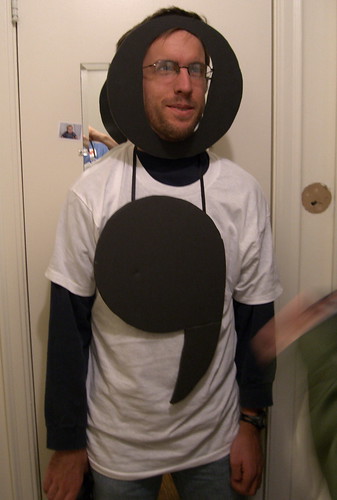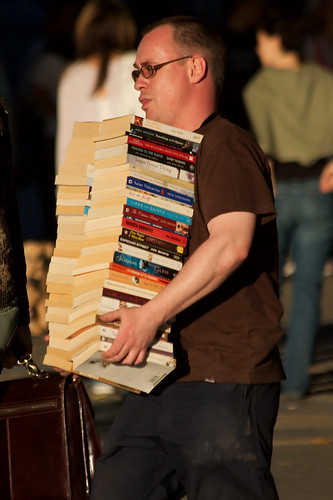I asked you all the other day whether you are (or have been) an addict – but it can be hard to tell. I didn’t find out I was addicted to tea until I had to give it up temporarily for health reasons (the tannin in tea lowers the absorption of iron) and found that hot water was not an adequate replacement. I went cold turkey, and these days I can get along just fine without tea if life happens that way – providing I drink a sufficient quantity of other liquids.
So how do you tell? Stephanie Pearl-McPhee, a.k.a. the Yarn Harlot did the sensible thing when accused of being a knitting addict and consulted the Diagnostic and Statistical Manual of Mental Disorders (fourth edition) a.k.a. DSM-IV.
“I flip through the pages looking for addiction, substance abuse, dependency, all the keywords. I find out that “substance dependence” (which seems about right for someone who wigged when she couldn’t get her yarn) is defined as an individual showing any three or more specific criteria within a year.”
While I have been known to knit obsessively under stress (I knit so I don’t stab people – it’s too hard to get blood out of the yarn), I don’t think I’m addicted to knitting. But I have a sneaking feeling that I may be addicted to reading. It’s how I relax, especially when times are rough. (Escapism?)
Feel free to substitute your own substance of preference and tally along.
Here are the criteria:
(1) Tolerance, as defined by either of the following: (a) A need for markedly increased amounts of the substance to achieve intoxication or desired effect. (b) Markedly diminished effect with continued use of the same amount of the substance.
Not guilty, m’lud. Reading is reading, and the effect is constant and unvariable, providing the material is of sufficient quality.
(2) Withdrawal, as defined by either of the following: (a) The characteristic withdrawal syndrome for the substance. (b) The same (or a closely related) substance is taken to relieve or avoid withdrawal symptoms.
Well, I don’t know what “the characteristic withdrawal syndrome” is for reading, but the one time I abstained from reading the difference was *cough* noticeable. Strike One: I
(3) The substance is often taken in larger amounts or over a longer period than was intended.
Yes, yes, all right! Books do not come with clocks attached. Possibly this is part of their appeal. Strike Two: II
(4) There is a persistent desire or unsuccessful efforts to cut down or control substance use.
Ha! That’ll be the day.
(5) A great deal of time is spent in activities to obtain the substance (e.g. visiting multiple doctors or driving long distances), use the substance (e.g. chain smoking), or recover from its effects.
Reading doesn’t really have the sort of effects you need to recover from, but I will admit to a weekly library visit, and a fairish amount of time spent reading (obviously; otherwise the library visit would be wasted time).
(6) Important social, occupational, or recreational activities are given up or reduced because of substance use.
Define “important”. I don’t get out much, it is true, but I don’t think I’d get out much more if there were no books. (Hideous thought.) As far as occupational activities go, reading is mandatory for writers. So there.
(7) The substance use is continued despite knowledge of having a persistent or recurrent physical or psychological problem that is likely to been caused or exacerbated by the substance (e.g. current cocaine use despite recognition of cocaine-induced depression or continued drinking despite recognition that an ulcer was made worse by alcohol consumption).
Reports vary as to whether bad eyes are caused (or exacerbated) by reading, but since my optometrist says my eyes have been stable for the last couple of years – and I definitely haven’t given up reading – I’m going to count that as a win. Reading is not bad for me.
Final score (by my count, anyway!): II: Not An Addict.
As to whether Stephanie Pearl-McPhee is indeed a knitting addict, you’ll just have to read the chapter entitled “Knit Junkie” in her book All Wound Up – a hilarious read for anyone, but especially for those of us who knit.
Just as I was congratulating myself on my official non-addict status, I came across this simpler (albeit less scientific) diagnostic test from Gail Carriger: “I suspect it may be like the difference between a drinker and an alcoholic; the one merely reads books, the other needs books to make it through the day.”
That one lands a little too close to home. A wise man once wrote: “Don’t you realize that you become the slave of whatever you choose to obey?”
I mastered reading long ago; it shall not master me.









